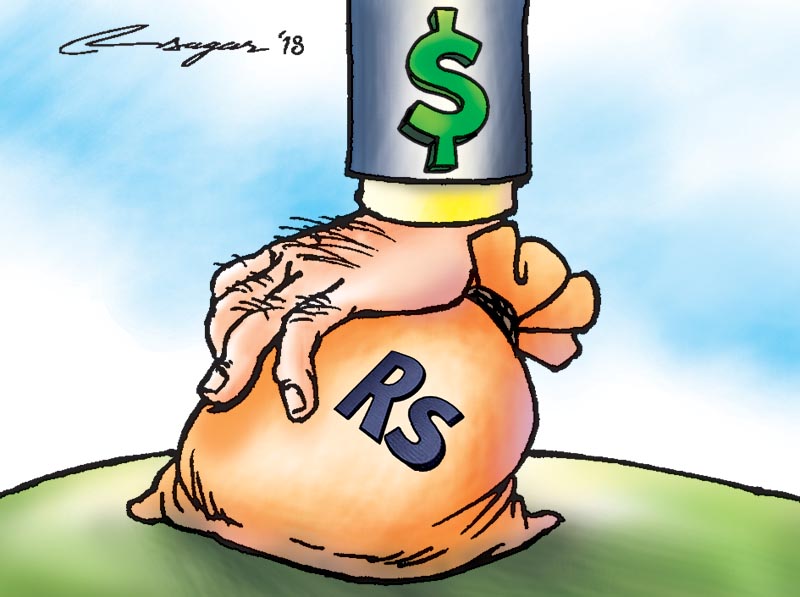Funds marked for debt servicing may be insufficient
- Stronger dollar adversely affecting several segments of the economy
Kathmandu, September 12
A sharp depreciation of Nepali currency vis-à-vis the US dollar has government officials fretting about the possibility that the funds earmarked for debt servicing this fiscal will be insufficient.
Since the beginning of this fiscal, Nepali currency has slid by 6.07 per cent. According to Nirmal Hari Adhikari, budget division head at the finance ministry, the funds earmarked for the repayment of principal and interest of foreign debt will be insufficient as Nepali currency is continuously sliding against the dollar. “We had earmarked the funds based on the exchange rate during the time of budget formulation, with certain margin for currency depreciation. However, the greenback strength has far exceeded our assumption that the exchange rate would hover at around Rs 110 per dollar.”
The government’s foreign debt stands at around Rs 503.63 billion, according to financial comptroller general’s office. The budget for the 2018-19 fiscal has allocated Rs 28.11 billion for repayment of principal and interest of the foreign loan.
In case funds for debt servicing are not enough, the government will have to transfer the unspent money allocated to other sectors to make up for the shortfall.
Stronger dollar will raise the cost of development works as well, according to the finance ministry. This is because of increased price of petroleum products as well as construction equipment. In a nutshell, all imports will be costlier, as per officials.
The dollar strength is also likely to affect the balance sheet of Nepal Electricity Authority — the power utility of the country — which had finally started generating profit from the previous fiscal. This is because NEA is purchasing electricity from the 60-megawatt Khimti Hydel Project at 10 US cents per unit and from 50-megawatt Upper Marsyangdi at seven cents (average) per unit. Moreover, Nepalis travelling abroad for vacation and education will have bigger holes drilled in their pockets.
Last fiscal, Nepalis spent Rs 79.6 billion on travel while the amount spent for overseas education (in terms of Nepali rupee) by Nepali students stood at Rs 38.09 billion.
The depreciation of local currency, on the one hand, will cause inflation to skyrocket as imports become dearer, and on the other hand, result in balance of payment crisis.
“To avoid BoP crisis, the government should curb import of certain luxury items, like gold, expensive private vehicles, reduce consumption of petroleum products and promote use of electricity — electric cars and electric appliances at home,” said Janardan Dev Pant, a banker by profession. “We must adopt austerity measures to avoid a crisis.” He said the central bank should consider investing its foreign exchange reserve (that would cover the import for certain months and be kept idle) in high yield instruments, such as government treasury and sovereign bonds.






